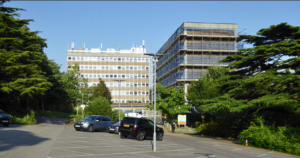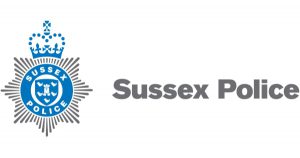The amount of council tax people in Rye will have to pay next year is slowly becoming clearer after several meetings by local authorities and the emergency services. The full cost will be finalized at a meeting of Rother District Council at the end of the month.
East Sussex County Council – Hugh Oxburgh, Local Democracy Reporter
Last week the county council agreed its annual budget for 2024/25, with proposals including a 4.99 per cent rise in council tax, the maximum allowed. This increase, which includes a special charge for adult social services, will see an average band D household pay the county council £1,778.31 next year — £84.51 more than the current year.

Cllr Nick Bennett, Conservative cabinet member for resources and climate change, told the meeting on Tuesday February 6: “The proposal to increase council tax is not made lightly particularly given pressure on household budgets, but we have to protect our services now and for the future. Demand for care services continues to grow and we have little choice but to increase local taxation.
“In proposing the budget, we are providing over £51 million of additional funding for a range of pressures that services are experiencing as they continue to deliver the core services. That includes: £36 million for contractual inflation and pay awards; £4 million for population changes in adult social care; [and] £19 million for pressures in children’s social care, including looked after children and foster care services.”
While the full budget does not include any new savings, it does include a planned use of reserves of up to £14.3 million to cover a shortfall in the council’s available funds. Cllr Bennett said this decision to draw from reserves had been made in light of advice from the government.

Liberal Democrat group leader David Tutt said his party felt the most significant decisions had already been taken nationally. “This budget is Jeremy Hunt’s budget and that is being reflected in local authorities across the length and breadth of the country, because the government has tied the hands of local government; it has taken away our ability for self-determination.”
Similar views were put forward by Labour group leader Chris Collier and Green Party group leader Johnny Denis. Cllr Collier said: “This is the government’s budget and not this council’s budget. It is basically what has come down from ministers, with very little opportunity to do anything differently.” Meanwhile, Cllr Denis said: “Frankly it is utterly depressing isn’t it, that we don’t feel in a position to be able to put forward an alternative budget at this point.”
Opposition councillors also repeatedly spoke about the prospect of a general election, with several members arguing that the council would be in a better financial position with a different national government.
This suggestion saw criticism from the Conservative council leader Cllr Keith Glazier, who also took issue with the view that the budget would be decided by anyone other than members. “Your comments that ‘we need a change of government and then everything will change’. Well, I look forward to it. I can see the money pouring in now and we can all relax this time next year, because we’ll have a Labour government and all of that money pouring in. Don’t kid yourself folks, the alternative is much, much more serious than that.”
Sussex Police – Thomas Hanway, Local Democracy Reporter
Sussex Police and Crime Commissioner Katy Bourne has told the Sussex Police & Crime panel that this year’s police precept, the police’s portion of the council tax bill, was “one of the most critical” she had decided since stepping into her role in 2012. The force need £6 million savings – down from £8 million – to balance its 2024/25 budget, with Mrs Bourne saying more “efficiencies” and savings would need to be found.
 At the meeting on Friday, January 26, Mrs Bourne said: “Looking forward, Sussex Police faces quite a big challenge. Crime is continuing to grow, the processes involved in dealing with crime are becoming more complex and like many other organisations, Sussex police has been affected by inflationary costs.”
At the meeting on Friday, January 26, Mrs Bourne said: “Looking forward, Sussex Police faces quite a big challenge. Crime is continuing to grow, the processes involved in dealing with crime are becoming more complex and like many other organisations, Sussex police has been affected by inflationary costs.”
Sussex has the seventh-lowest police precept in England, and the sixth-lowest funding per person, with the increase to take it from £239.91 a year for band D households to £252.91.
East Sussex Fire and Rescue
East Sussex Fire Authority set its budget for 2024/2025, including decisions over council tax and future options for delivering services, at a meeting on Thursday February 8.

The Service’s budget is set at £49.992 million, the vast majority of which is spent on staff, equipment and training, maintaining fire stations, other buildings and vehicles. It agreed to an increase of 2.99% (at Band D), the maximum allowed without a referendum. At Band D that is an increase of £3.12 a year or just 6 pence per week.
Image Credits: rawpixels.com CC , Robin Webster CC , Sussex Police .



